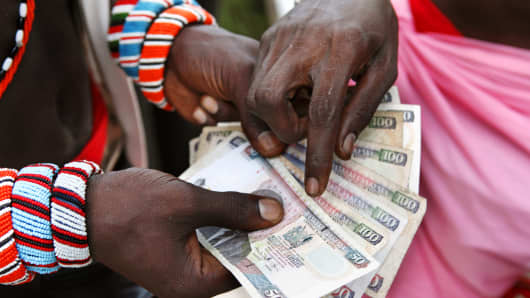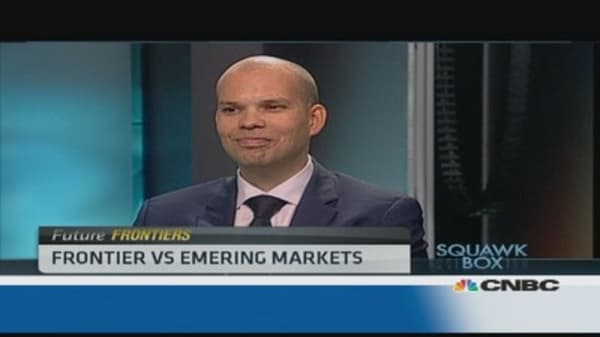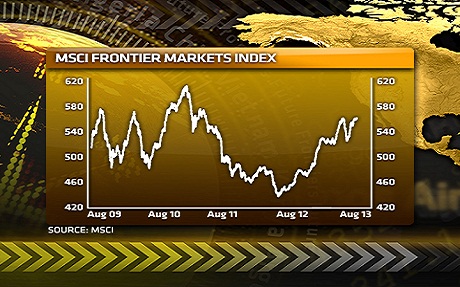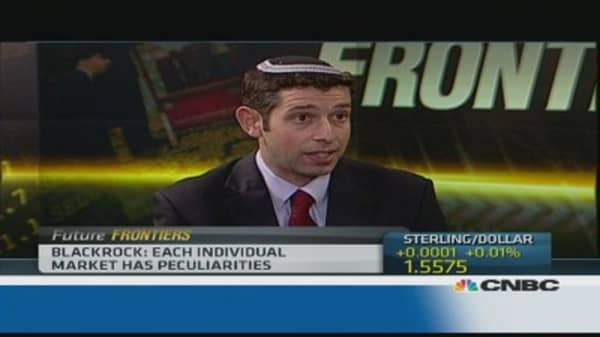As money flows out of emerging markets on fears about an end to the U.S. Federal Reserve's bond-buying program, frontier markets have enjoyed something of a renaissance - but there can be "huge problems" for intrepid investors, analysts told CNBC.
The MSCI frontier markets index - which consists of companies from across 25 frontier markets including countries such as Argentina, Tunisia and Vietnam - is up around 15 percent (in dollar terms) over the year to date, bucking the trend of emerging and developed markets which are in the midst of a sell-off.
The executive director of research at global index compiler MSCI told CNBC that frontier markets had escaped this market flight because they were less exposed to global market factors.
(Read more: Global sell-off worsens on flight from emerging markets)
"Frontier markets are very much focused on internal demand and they exhibit relatively low correlation to the more global markets… and that probably explains why we see a great performance year-to-date on the frontier markets," Sebastien Lieblich told CNBC Europe's "Squawk Box" on Tuesday.
A significant number of frontier markets are in the Middle East and four of the most heavily weighted countries in the index - Qatar, the United Arab Emirates (UAE) , Kuwait and Nigeria - belong to the wealthy Organization of the Petroleum Exporting Countries (OPEC). Earlier this year, MSCI upgraded Qatar and the UAE to emerging market status, which will be effective from May 2014.
(Read more: Data could cast bigger shadow on emerging markets)







